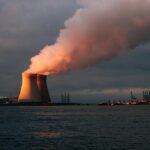B.C. export growth expected to lead country this year and next, says Export Development Canada
British Columbia’s exports are forecast to increase 16 per cent this year and 11 per cent in 2012, according to a Global Export Forecast by Export Development Canada (EDC).
“British Columbia’s exports will continue to expand at a double-digit pace through 2012, the only province to hit this mark, thanks to a resurgence in the forestry sector,” said Peter Hall, chief economist for EDC, to an audience of 125 at the Marriott Pinnacle.
“B.C.’s strong performance is directly related to true recovery that will be occurring in the U.S. economy in early 2012. The province is also seeing strong underlying growth, the result of years of trade diversification. International sales will be bolstered by strong demand from emerging Asian markets, particularly China, which now represents 14 per cent of the province’s total exports.”
The province’s international export picture is led by three key sectors:
Forestry, accounting for 32 per cent of the province’s total exports;
Energy, accounting for 27 per cent; and
Industrial Goods, accounting for 19 per cent.
The province’s international exports from the forestry sector are forecast to grow 13 per cent in 2011 and 24 per cent in 2012.
Continuing strong demand from China and the resumption of activity in the U.S. residential housing market will provide a substantial boost to exports of wood products through 2012.
While the Chinese demand is expected to slow as authorities aggressively tighten monetary policy, B.C.’s exports to China will remain strong. Indeed, key sawmills have been reopened to exclusively serve the Chinese market.
The outlook for the pulp sector is not as promising. Lower output due to the recently-announced shutdown of the Mackenzie pulp mill will exacerbate an already soft pricing environment.
Chinese demand will again be an important growth driver in 2011 and 2012, but increased competition from new capacity in Southeast Asia and weaker inventory building could constrain growth.
British Columbia’s exports of energy are forecast to jump 27 per cent this year before easing to seven per cent growth in 2012, driven by higher prices for coal and increased natural gas output from the Montney shale gas field.
Despite a strong growth outlook, bad weather conditions and a labour dispute at the Elkview coalmine have already affected production, shipping and exports.
However, better coal fundamentals have led to numerous capacity expansion projects and new mining developments that should result in greater production over the next two years and beyond.
Continued exploration and development of the Horn River Basin and Montney shale gas formation is expected to boost export volumes further through 2012. The Montney formation is doing particularly well with high concentration of natural gas liquids.
EDC’s forecast for B.C.’s industrial goods sector calls for an increase of 18 per cent in 2011 and a decline of one per cent in 2012. Industrial goods exports will benefit from strong commodity prices in 2011, particularly for gold and copper, and the beginning of production at the old Similco mine in July.
Production from the province’s largest copper mine is expected to remain stable in 2011 and several new developments and expansions (Gibraltar, Prosperity, New Afton, Mount Milligan, and Red Chris) will contribute to higher output going forward.
However, the expected decline in metal prices in 2012 will leave export growth slightly negative next year.
Canadian merchandise exports are forecast to rise 14 per cent in 2011 and eight per cent in 2012. Nationally, economic growth is expected to rise by 2.7 per cent in 2011 and 2.4 per cent in 2012. Internationally, EDC is forecasting global growth of 4.1 per cent in 2011 and 4.3 per cent in 2012.























